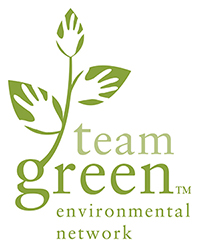Six years ago a couple from the U.K. decided to make a lifestyle change and go vegan. As with many philosophical metamorphoses, they wanted to encourage others to go vegan as well. So with a catchy name and £100 for Facebook ads, they launched Veganuary from their home in York, England. It is a month-long campaign to get people to eat vegan for the month of January. The non-profit organization’s mission is to encourage and support “people and businesses alike to move to a plant-based diet as a way of protecting the environment, preventing animal suffering and improving the health of millions of people.”
Fast forward to 2019, more than a half million people in 178 countries have taken the pledge to go vegan for the month of January and the momentum is growing. As of January 1, 2020, more than 30,000 people in the U.S. have signed up. Businesses and major events like the Golden Globe Awards have jumped aboard the vegan movement as well.
The three most often cited benefits of a plant-based diet; animal welfare, environment, and health, to one extent or another, make up the trifecta of veganism’s appeal which is seeing unrivaled growth. According to a recent article in Forbes magazine “The number of U.S. consumers identifying as vegan grew from 1% to 6% between 2014 and 2017, a 600% increase, according to GlobalData. Sales of plant-based alternatives to animal-based foods including meat, cheese, milk and eggs grew 17% over the past year, while overall U.S. food sales rose only 2%, according to data from Nielsen and the Good Food Institute. The market for such foods totaled more than $3.7 billion.”
During that same half-decade, a multitude of studies, articles, and reports have made the case on all fronts for a plant-based diet. With regard to environmental impact, studies usually compare the complete production cycle of meat to the production of plants for human consumption. These comparisons include, among other things: how resource-intensive the production processes are; the levels of greenhouse gas emissions, land occupation, environmental destruction and deforestation, damage to bio-diversity, water pollution and water scarcity; waste and toxicity, and air pollution. Veganuary.com offers a variety of articles on these topics along with references and links to the scientific reports.
Vocal detractors of veganism, usually someone affiliated with the meat and dairy industries, have put out talking points to argue the environmental benefits of a plant-based diet. The typical argument is often focused on the environmental footprint of shipping fruits and vegetables (F&V) around the world by jet and by tanker. That argument against veganism loses traction because the supply chain issues are not exclusive to F&V only. The production flow and supply chain for all foods carry short and long term risks that require adaptation for greater sustainability.
As those systems evolve, consumers can make inroads by deciding to choose locally produced F&V whenever possible, and eating according to seasonal availability. TheWellEssentials.com offers a five-step approach for eating seasonally and locally all year long.
1. Get acquainted with your local growing seasons
2. Make a seasonal food list
3. Prep for the seasons ahead of time
4. Buy in bulk and use good food storage practices
5. Think creatively and push your comfort zone
Adopting a plant-based diet and going local whenever possible are two concrete ways to reduce your own environmental impact. Taking the Veganuary pledge for a month, committing to Meat Free Mondays, or any other plant-based movement are fun ways to join with others and promote a more humane, healthy, and sustainable future.
It’s free and easy to sign up for Veganuary anytime during the month of January. You’ll get encouragement, recipes, factual information on veganism, and a worldwide community to connect with. Go to uk.veganuary.com
By Denice Shuty

mjVywGbTuB says...
humFEWGs
October 12, 2020
tAoKmMQSWDlgPwa says...
FcVrvMiafPo
October 12, 2020
PpwfUAtqIYr says...
LngWFOcai
October 03, 2020
LSgGqFOdkTRv says...
ivSLgekDPJ
October 03, 2020
hArYJWOHNbn says...
dhSxQHCvWblE
August 25, 2020
cwhJiltHKGzC says...
EUaQsMKzlrPo
August 25, 2020